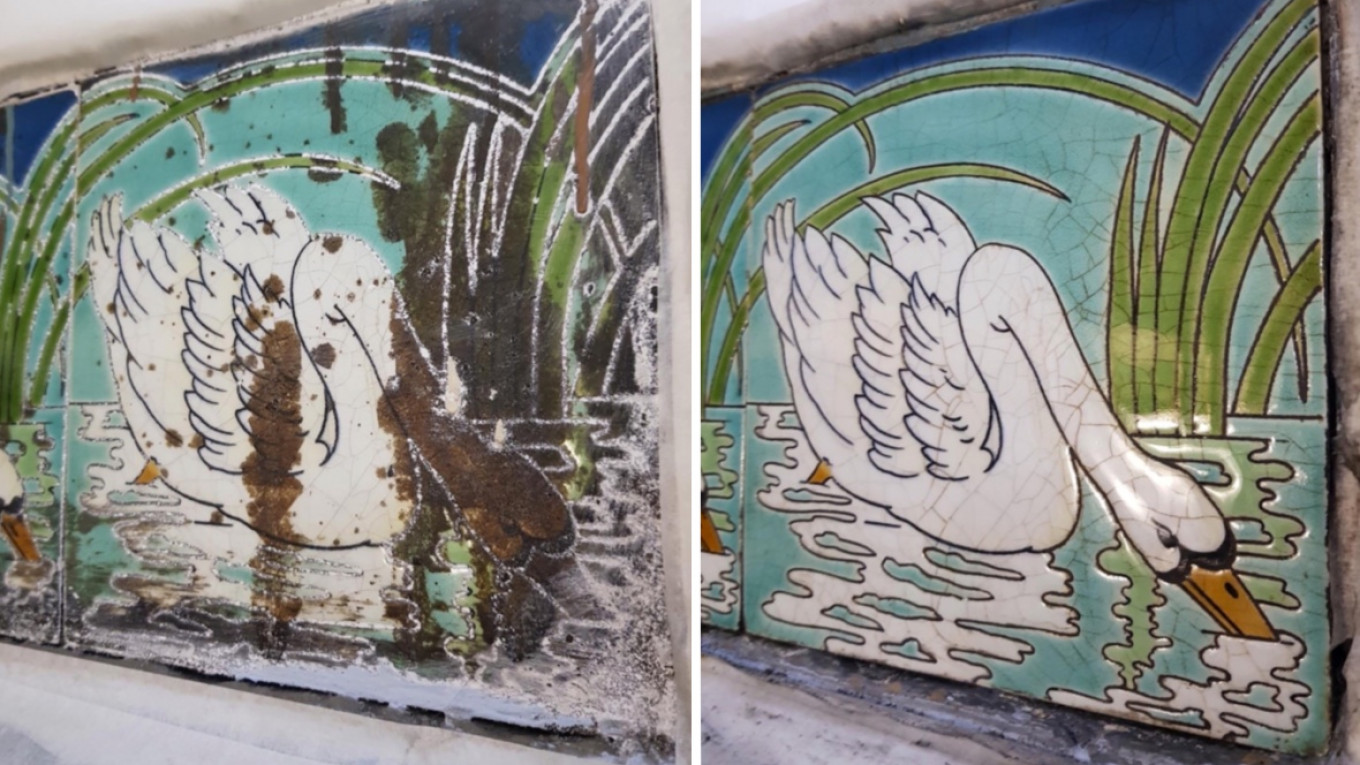At the end of March, residents in an apartment house in St. Petersburg suddenly saw that the bulky gray and green ceramic lump in their entryway was actually a majolica heating stove made by Peter Vaulin with a panel based on a drawing by Mikhail Vrubel.
They could see it because a group called the Gang spent eight hours a day for more than a week — and 15,000 rubles (about US$200) — carefully stripping layers of paint, dust, putty and dirt from the old tiles.
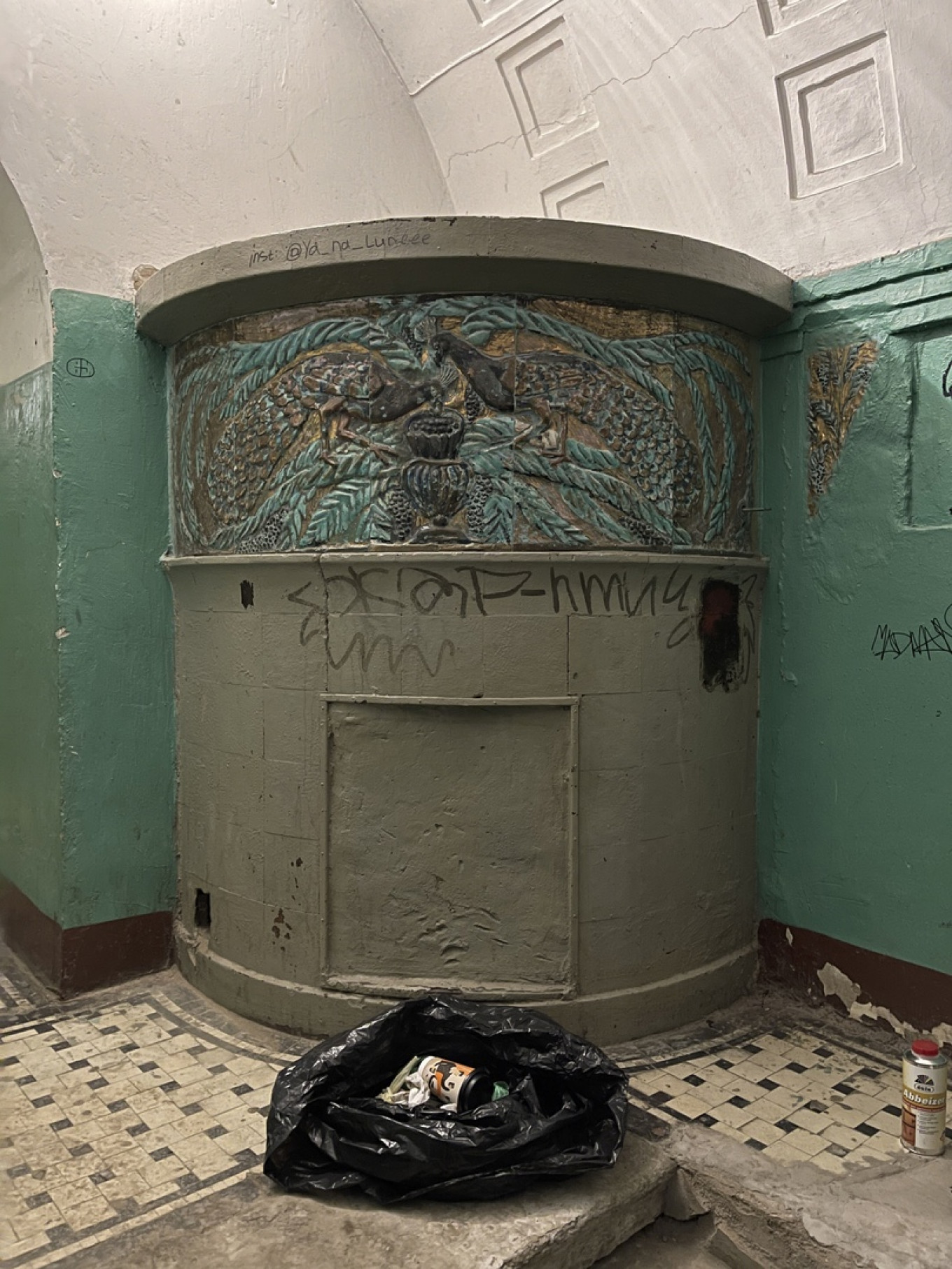
The Gang is a team of nine local historians and volunteers in St. Petersburg, who for the last two years have been giving new life to the old beauty in the entrances more than 20 houses, one playground, and two graves. They also cataloged, and perhaps saved, a neglected Old Believers’ cemetery.
“Beauty is hidden behind the paint, and we want it to be in plain sight,” Eduard Karyakin, one of the activists of the Gang, told The Moscow Times. “So we clean tiles, stained glass windows, and heating stoves in the entrances of old apartment houses. We want people to see that they can do this themselves.”
Their search for work is not a secret operation. Activists walk around neighborhoods and poke their heads in front doors. Often people send proposals through social media. When they see that more highly skilled professional work needs to be done, they turn down the job. They do not do restoration work, they only clean, wash, strip old paint, and plaster up holes.
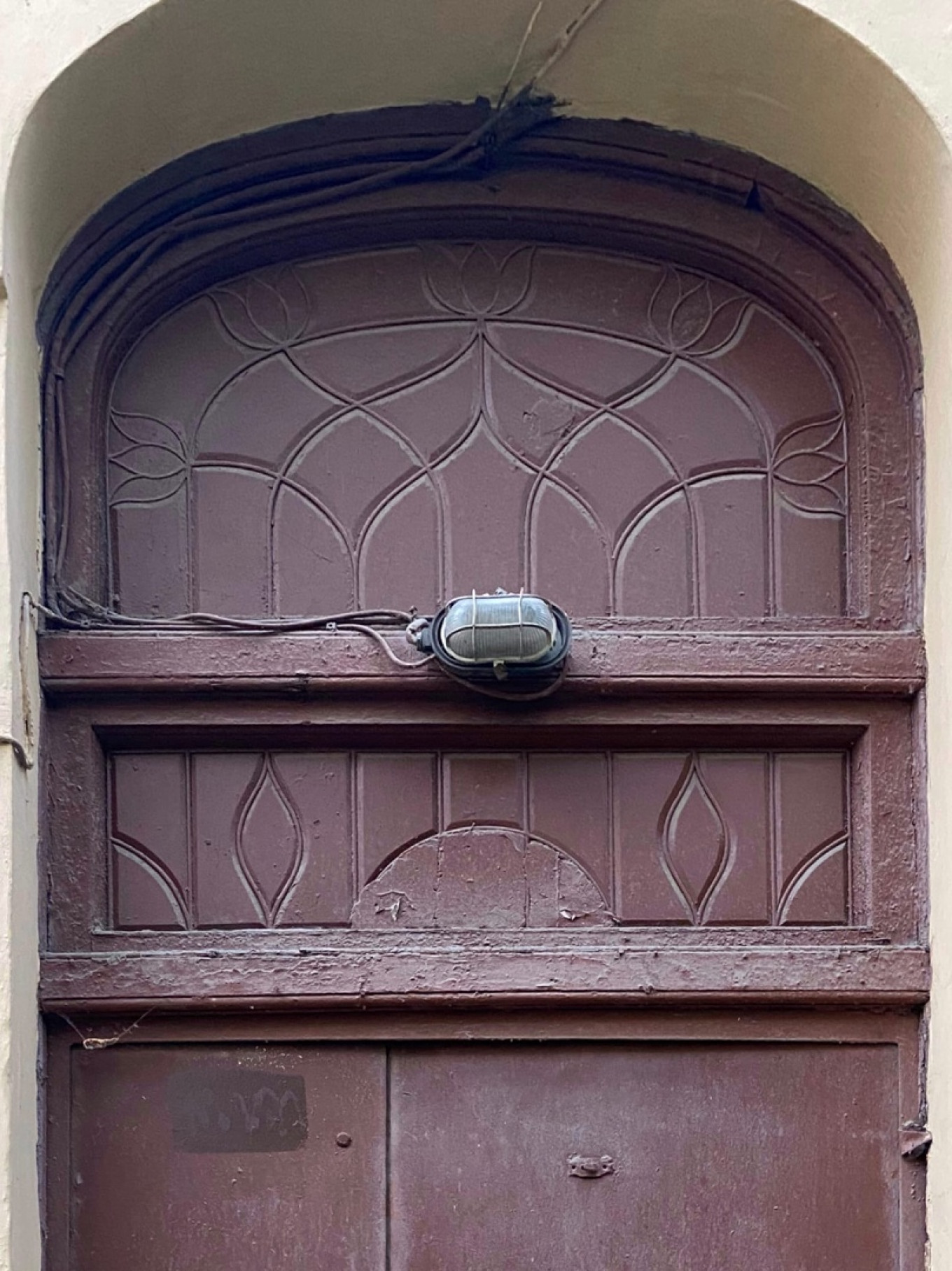
They work for free but need some funds to buy materials. Financial aid comes from different sources: sometimes activists use own money, sometimes they get grants, sometimes people help them. In 2020, designer Artemy Lebedev donated 100,000 rubles. Part of this money helped to finish work on cleaning the heating stove in the entrance of an apartment built in 1906. There were 11 layers of paint covering the beautiful peacock's eye bas relief. But now everybody can see it.
Each project goes through several stages of approval: first by residents of the house and the homeowners’ association; then by the Committee for State Control, Use and Protection of Historical and Cultural Monuments (KGIOP). Unfortunately, sometimes residents refuse because they don’t understand the point.
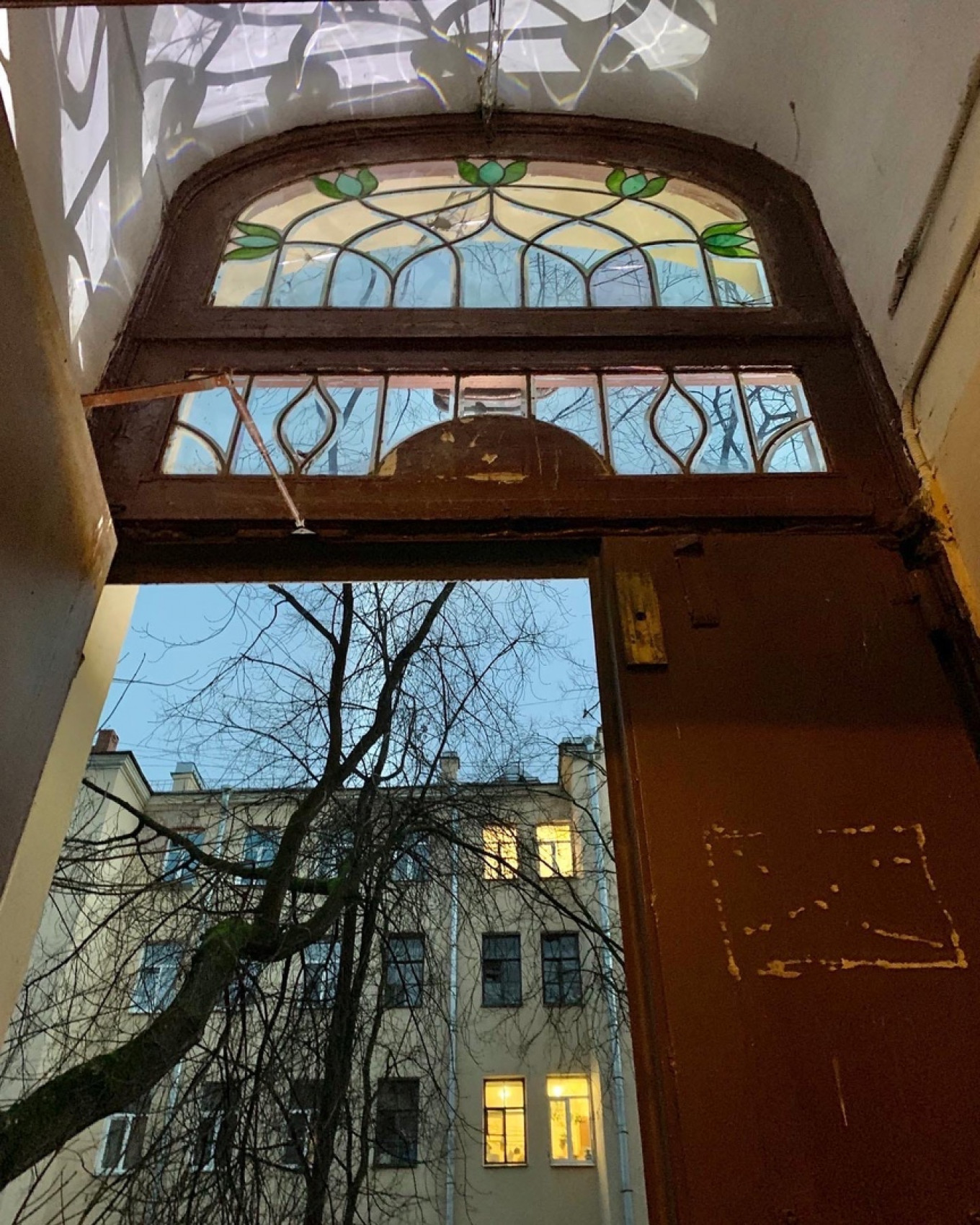
“But in most cases the residents begin to take care of the entrance. In all the work the Gang has done, no one has ever painted over what we revealed. In fact, sometimes the opposite happens — after our work, the tiles or panels come under the protection of the KGIOP,” Karyakin said.
All last October activists worked at the children's playground called The Sea Bottom, built during the Soviet period. Maria Tychinina, another Gang activist , was able find the artist who created the original decorations, and together with him, activists developed a technology for replacing the lost mosaics.
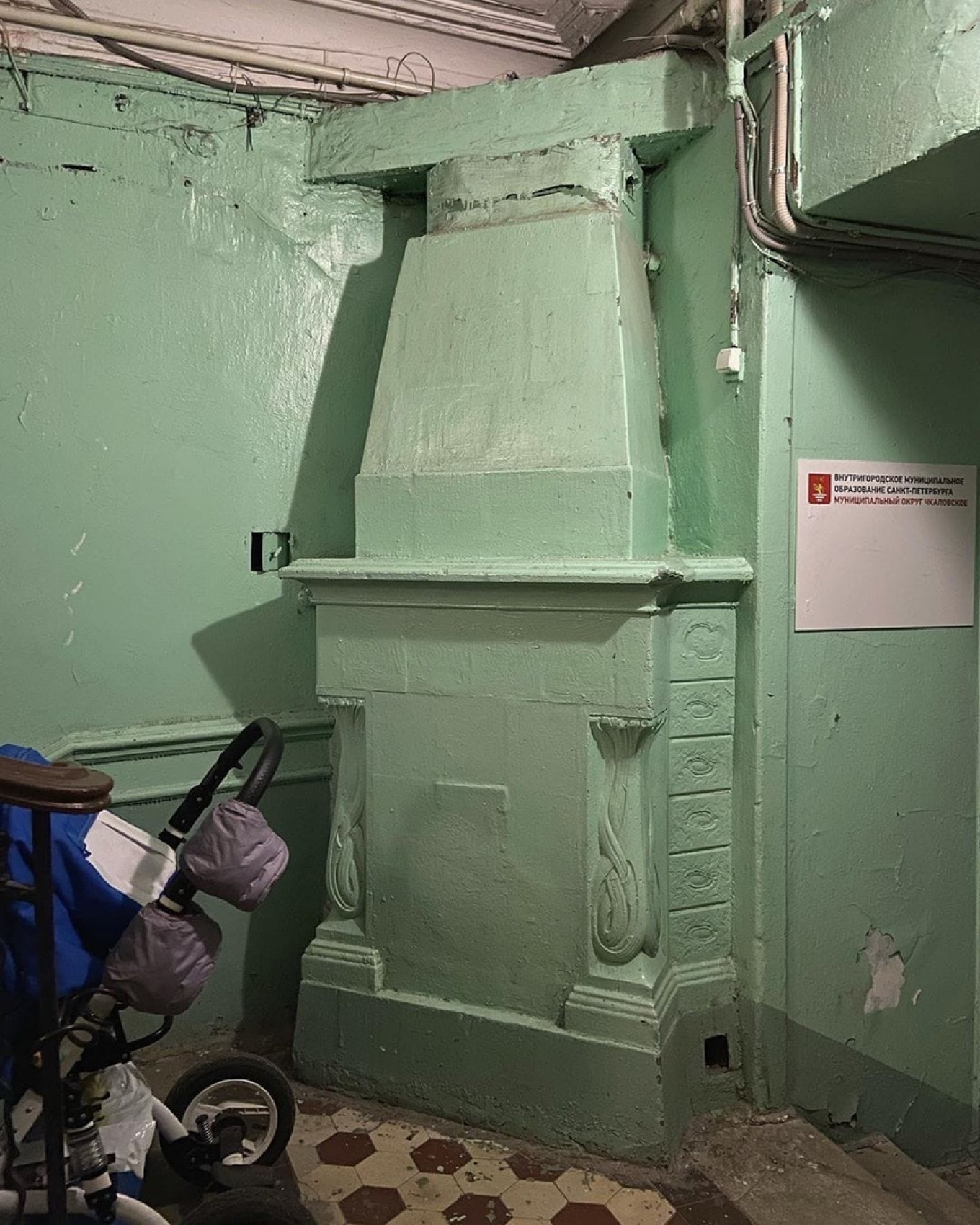
Tychinina also put together a catalog of the Old Believer Malokhtinsky cemetery, which was officially registered in 1768 and has graves from the 18th and 19th centuries. Together with volunteers, the activists cataloged and photographed them, and now plan to put all their data online.
“We don’t just clean apartment house entrances. If we can continue different projects or start new ones — why not?” Karyakin said.
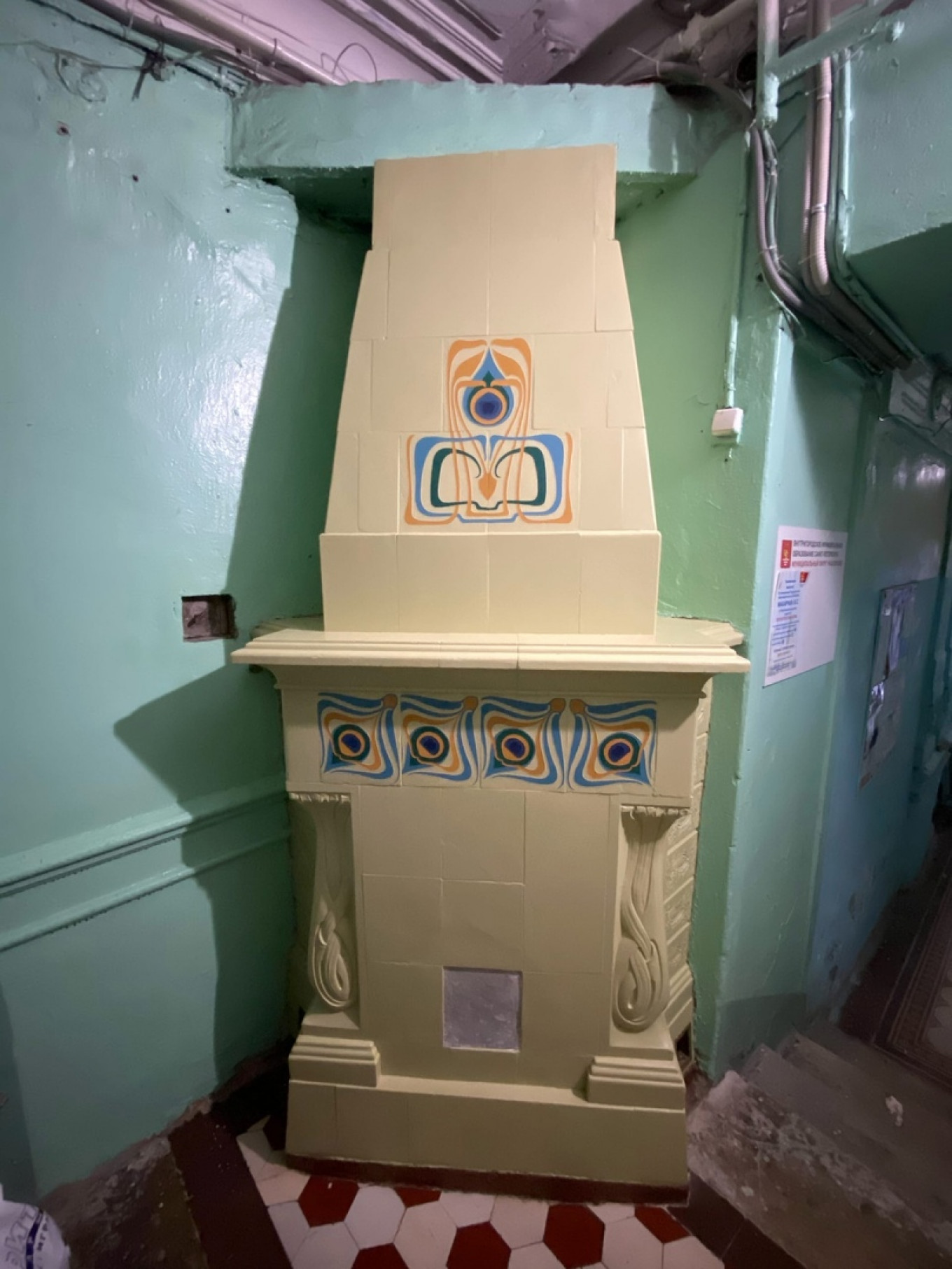
In 2019, activists held two regional festivals called “Kraikon” that included presentations by librarians, genealogists, museum workers, local historians, and journalists of St. Petersburg and the Leningrad region. They were unable to hold a festival last year due to the coronavirus pandemic and may not be able to hold one this year either.
“We do not have specific plans for the current year, but we continue to draw attention to local history,” Karyakin said. They might be starting a larger movement, as volunteers from other cities get involved. “People see the results, and they see that almost anyone can do this work.”
To follow The Gang's work, see their VKontakte account here (there are instructions in English to sign up) or follow one of their participants on Instagram here.
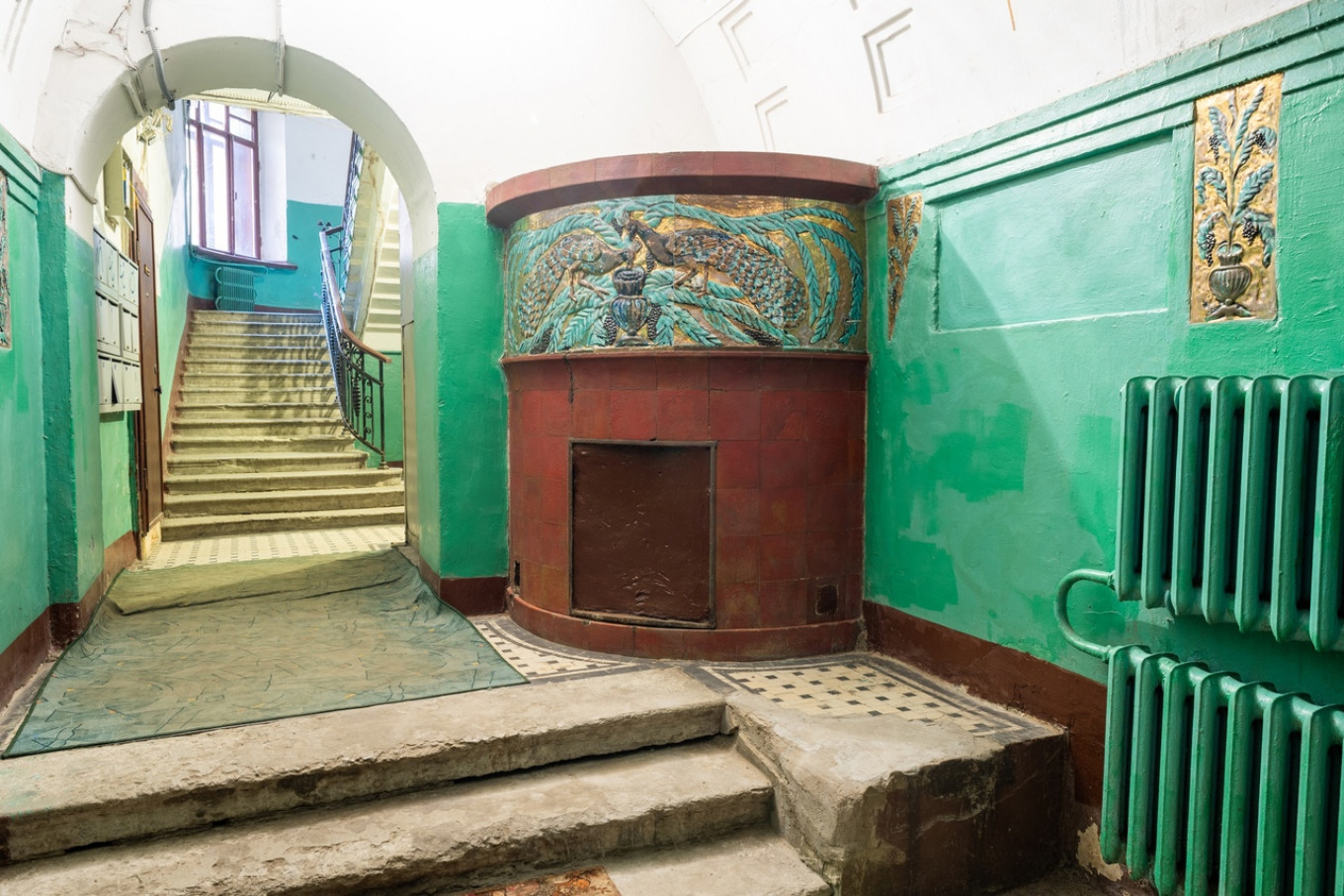
A Message from The Moscow Times:
Dear readers,
We are facing unprecedented challenges. Russia's Prosecutor General's Office has designated The Moscow Times as an "undesirable" organization, criminalizing our work and putting our staff at risk of prosecution. This follows our earlier unjust labeling as a "foreign agent."
These actions are direct attempts to silence independent journalism in Russia. The authorities claim our work "discredits the decisions of the Russian leadership." We see things differently: we strive to provide accurate, unbiased reporting on Russia.
We, the journalists of The Moscow Times, refuse to be silenced. But to continue our work, we need your help.
Your support, no matter how small, makes a world of difference. If you can, please support us monthly starting from just $2. It's quick to set up, and every contribution makes a significant impact.
By supporting The Moscow Times, you're defending open, independent journalism in the face of repression. Thank you for standing with us.
Remind me later.


